Does paternalistic regulation work?
Coercive nanny state policies create a number of problems and costs. ‘Sin taxes’ raise the cost of living and hurt the poor. High prices fuel the black market and lead to corruption. Advertising bans restrict competition and stifle innovation. Smoking bans cause serious damage to the hospitality industry. Excessive regulation creates excessive bureaucracy and drains police resources.
Insofar as ‘public health’ campaigners acknowledge the damage done by their policies, they argue that it is more than offset by the benefit to health – the ends justify the means. But there is little evidence that countries with more paternalistic policies enjoy greater health or longevity. As Figure 1 shows below, there is no correlation whatsoever between Nanny State Index scores and life expectancy.
Life Expectancy
Figure 1.
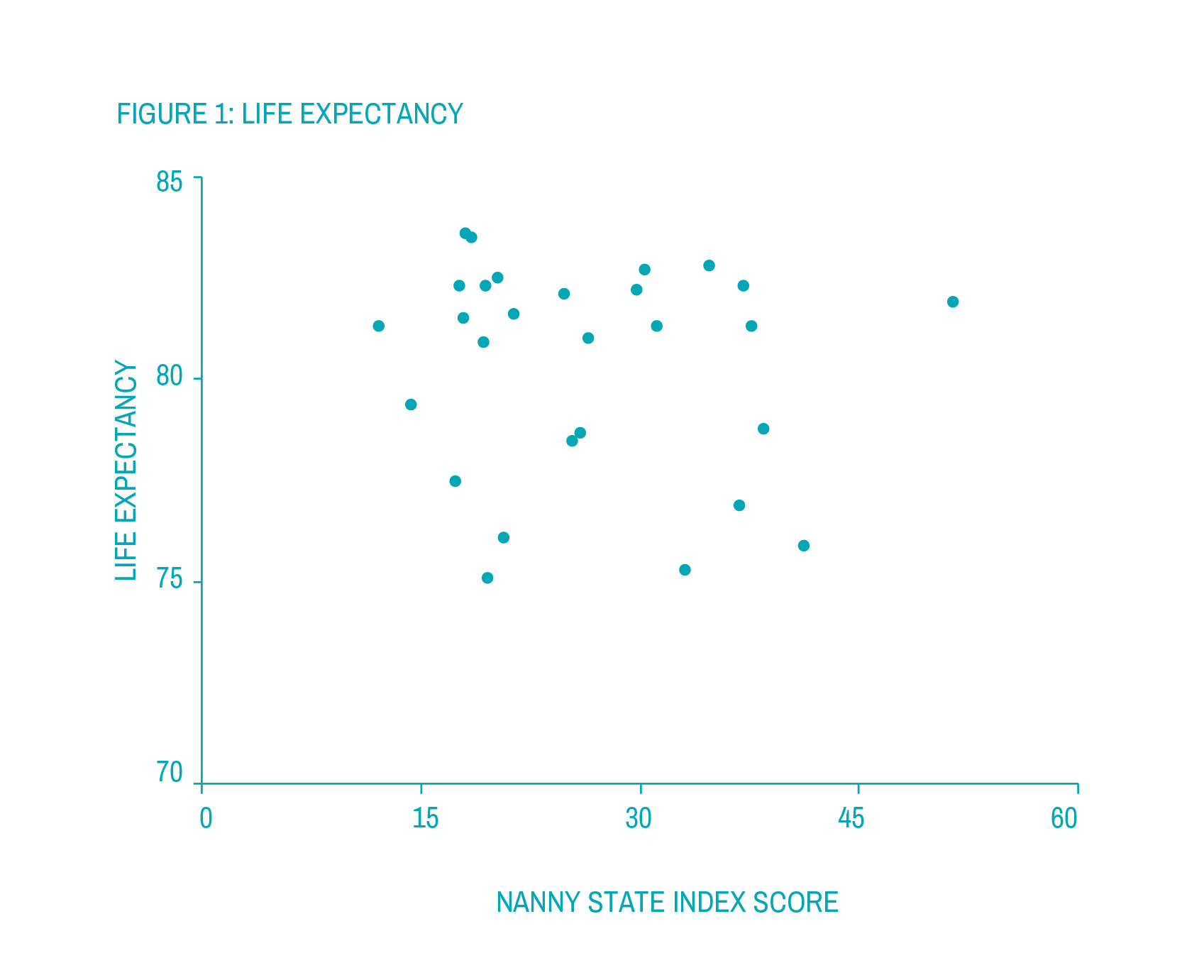
Tobacco and Alcohol
Nor is there a correlation between tobacco control scores and lower smoking rates (Figure 2), or between alcohol control scores and lower rates of alcohol consumption (Figure 3).
Figure 2.
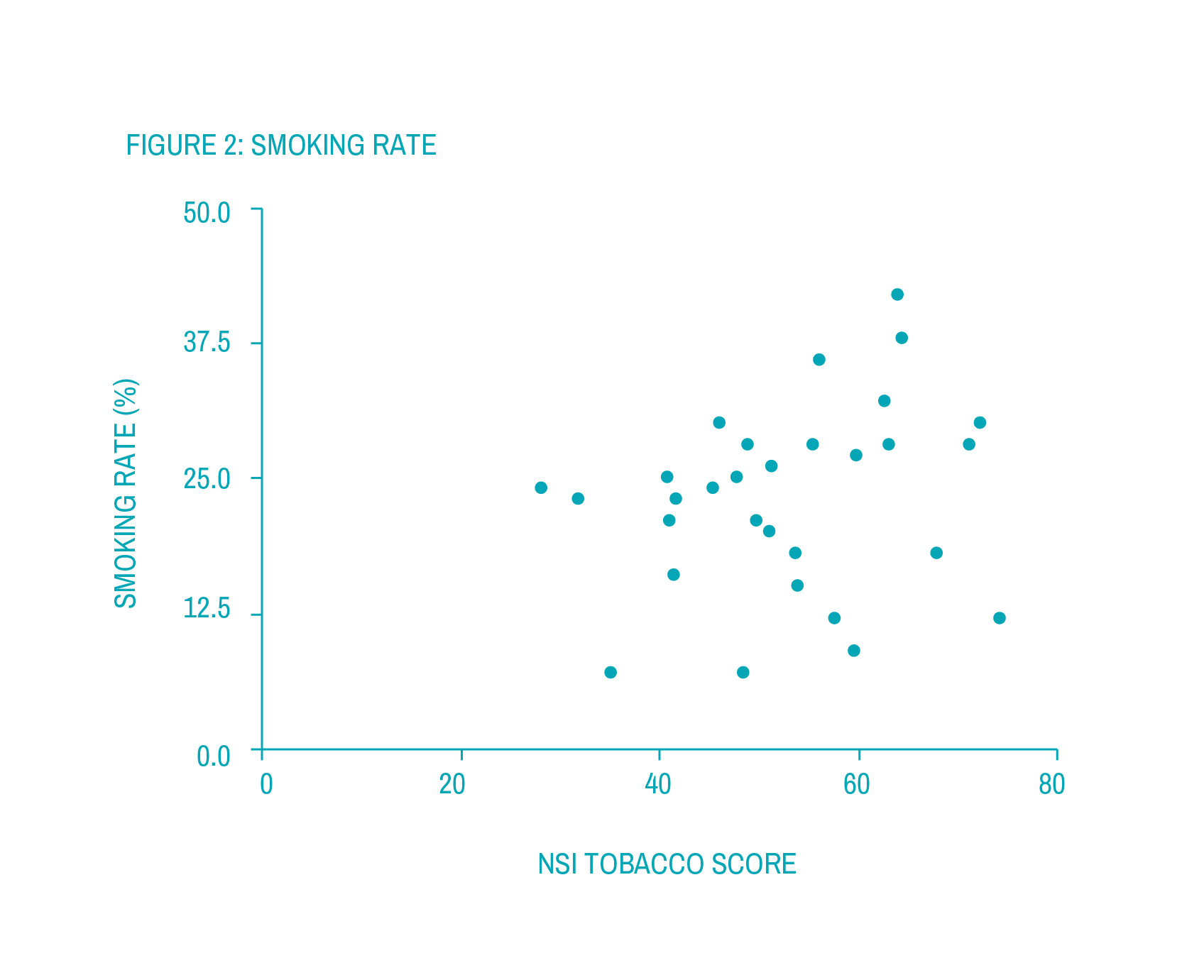
Figure 3.
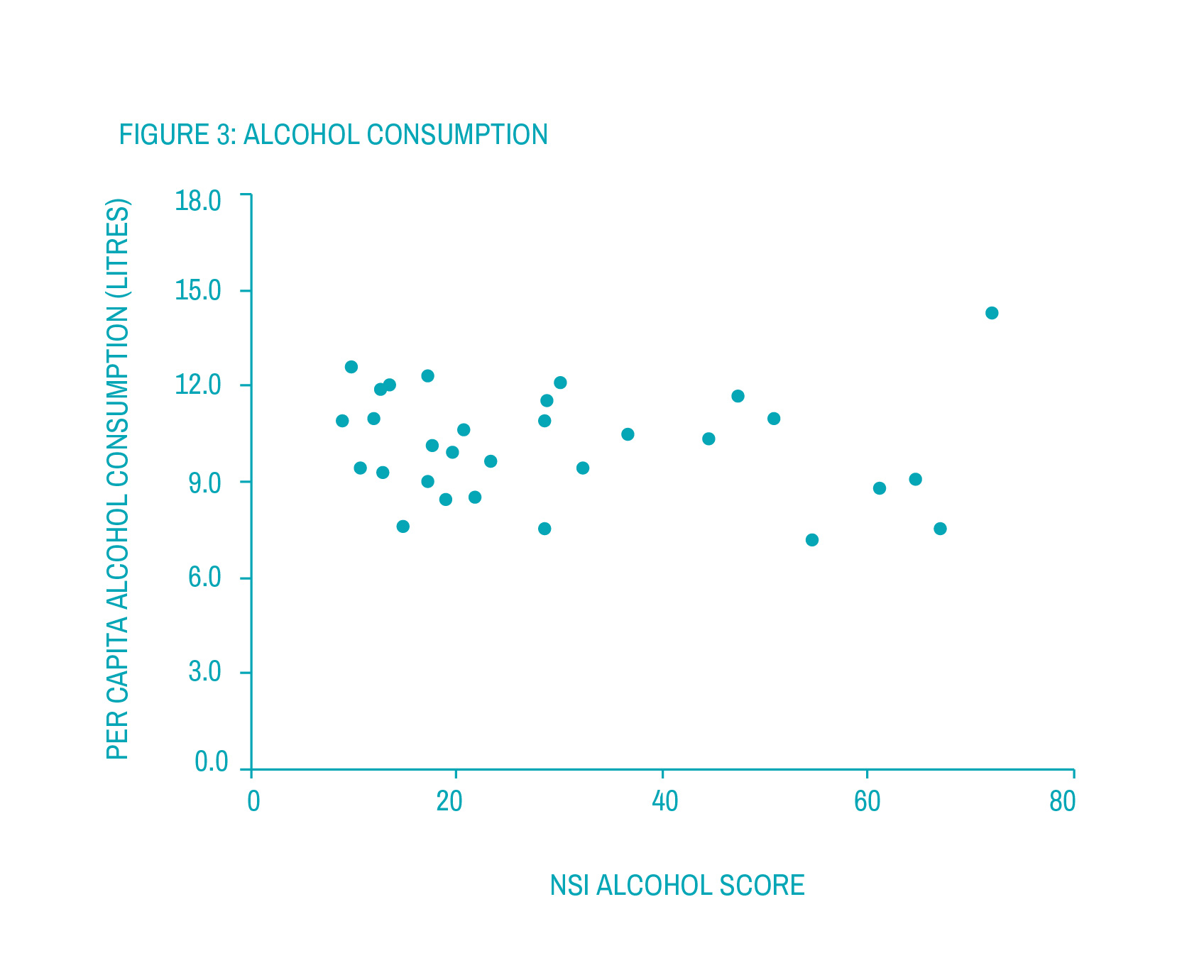
Prosperity
But there is a strong relationship between health and wealth. Figure 4 shows the relationship between life expectancy and economic prosperity as measured by per capita GDP.[1] This suggests that pursuing economic growth would bring much greater benefits to health than coercive efforts to control personal behaviour with bans and taxes.
[1] Ireland and Luxembourg have been excluded from this graph as they are corporate tax havens whose exceptionally high per capita GDP figures do not accurately reflect the citizens’ incomes.Figure 4: Life expectancy and per capita GDP scores
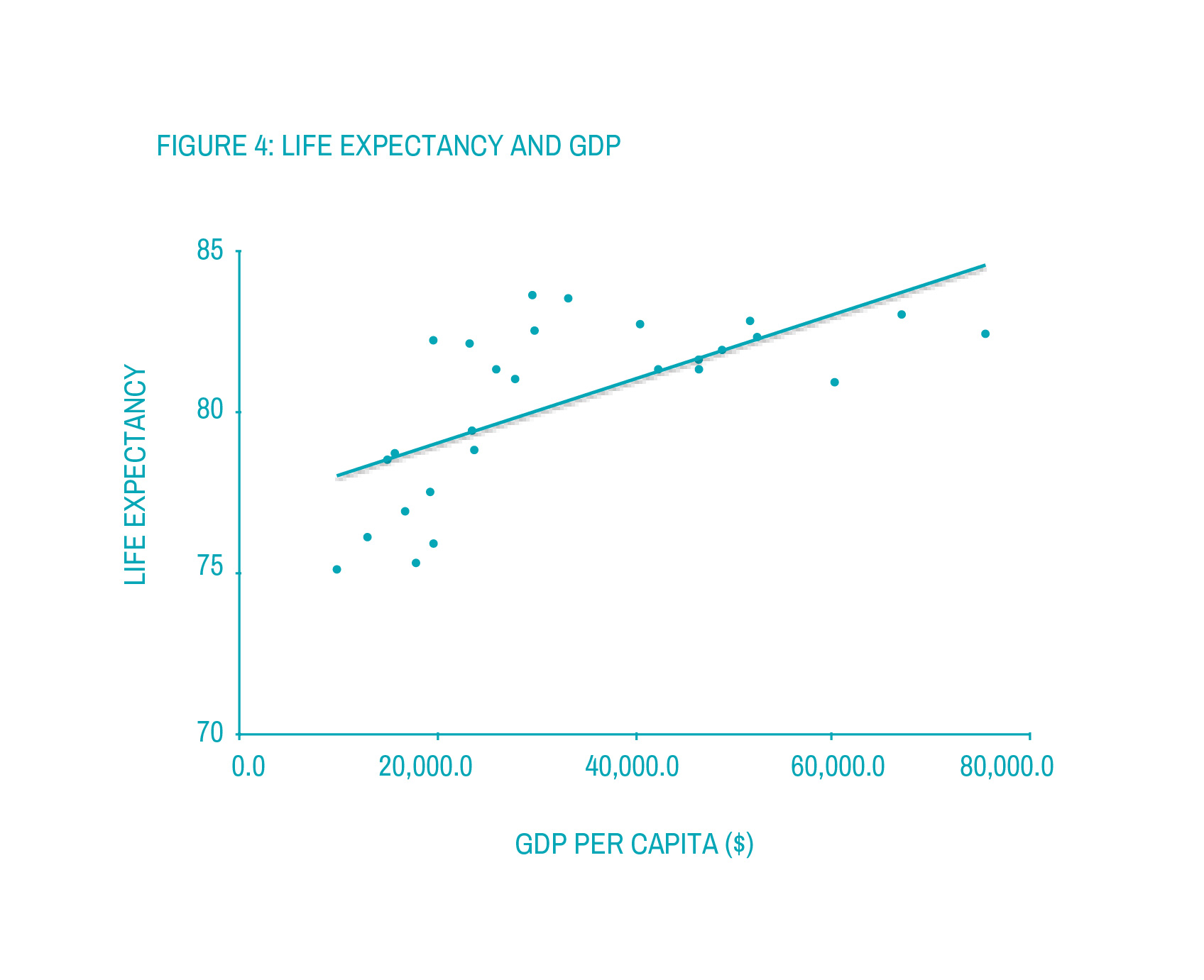
Thanks
The Nanny State Index could not have been compiled without the valuable assistance of our network of friends throughout Europe and the think tanks listed in the sidebar. While every effort has been made to verify the data from multiple sources, mistakes can happen so please notify us if you believe the Index contains any errors.
About
The Nanny State Index (NSI) is a league table of the worst places in Europe to eat, drink, smoke and vape. The initiative was launched in March 2016 and was a media hit right across Europe. It is masterminded and led by IEA’s Christopher Snowdon with partners from all over Europe.
Enquiries: info@epicenternetwork.eu
Download Publication
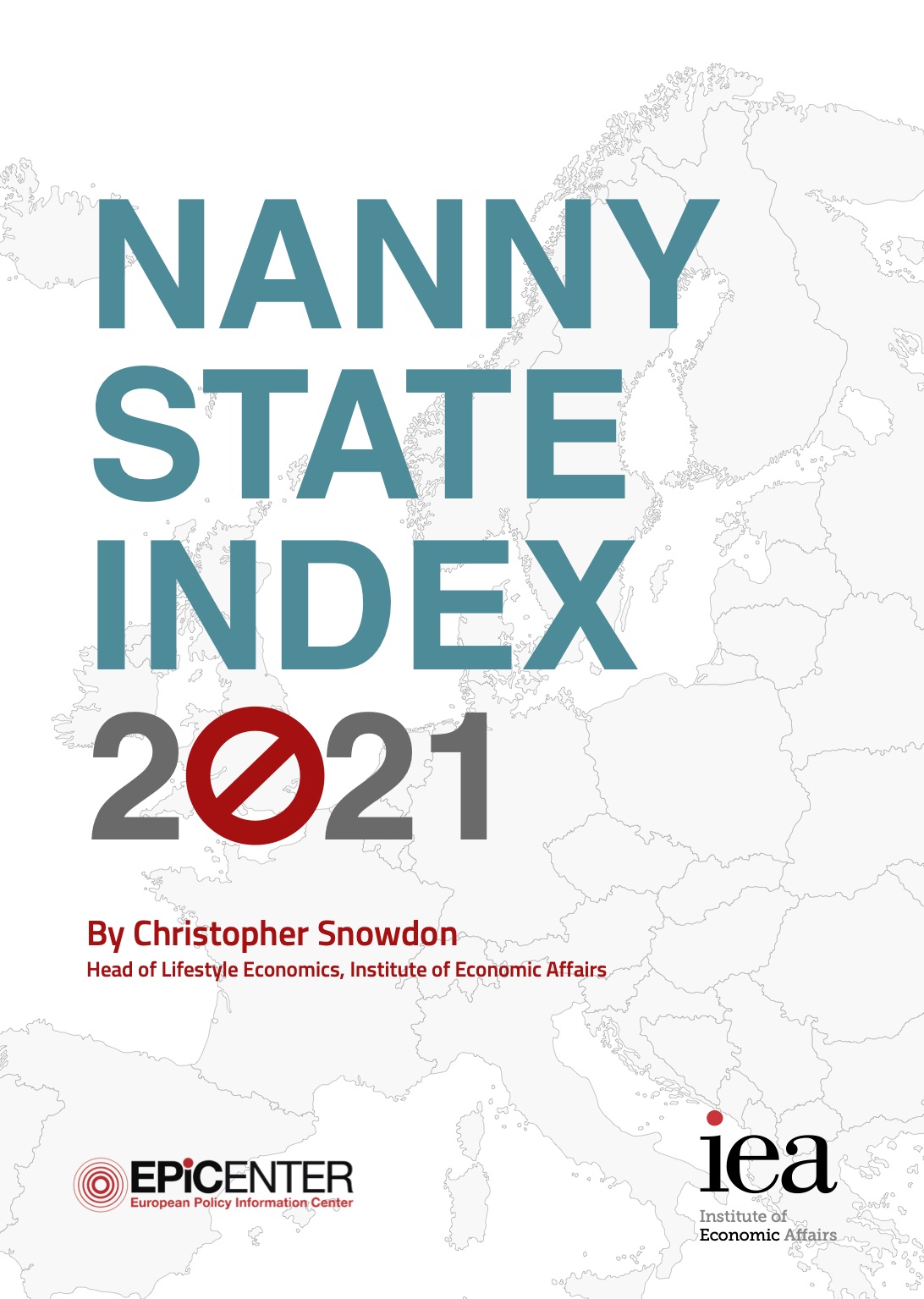
Previous version: 2019
Categories
About the Editor
Christopher Snowdon is the head of Lifestyle Economics at the Institute of Economic Affairs. His research focuses on lifestyle freedoms, prohibition and policy-based evidence. He is a regular contributor to the Spectator, Telegraph and Spiked and often appears on TV and radio discussing social and economic issues.
Snowdon’s work encompasses a diverse range of topics including ‘sin taxes’, state funding of charities, happiness economics, ‘public health’ regulation, gambling and the black market. Recent publications include ‘Drinking, Fast and Slow’, ‘The Proof of the Pudding: Denmark’s Fat Tax Fiasco’, ‘A Safer Bet’, and ‘You Had One Job’. He is also the author of ‘Killjoys’ (2017), ‘Selfishness, Greed and Capitalism’ (2015), ‘The Art of Suppression’ (2011), ‘The Spirit Level Delusion’ (2010), ‘Velvet Glove, Iron Fist’ (2009).
Does paternalistic regulation work?
Coercive nanny state policies create a number of problems and costs. ‘Sin taxes’ raise the cost of living and hurt the poor. High prices fuel the black market and lead to corruption. Advertising bans restrict competition and stifle innovation. Smoking bans cause serious damage to the hospitality industry. Excessive regulation creates excessive bureaucracy and drains police resources.
Insofar as ‘public health’ campaigners acknowledge the damage done by their policies, they argue that it is more than offset by the benefit to health – the ends justify the means. But there is little evidence that countries with more paternalistic policies enjoy greater health or longevity. As Figure 1 shows below, there is no correlation whatsoever between Nanny State Index scores and life expectancy.
Life Expectancy
Figure 1.

Tobacco and Alcohol
Nor is there a correlation between tobacco control scores and lower smoking rates (Figure 2), or between alcohol control scores and lower rates of alcohol consumption (Figure 3).
Figure 2.

Figure 3.

Prosperity
But there is a strong relationship between health and wealth. Figure 4 shows the relationship between life expectancy and economic prosperity as measured by per capita GDP.[1] This suggests that pursuing economic growth would bring much greater benefits to health than coercive efforts to control personal behaviour with bans and taxes.
[1] Ireland and Luxembourg have been excluded from this graph as they are corporate tax havens whose exceptionally high per capita GDP figures do not accurately reflect the citizens’ incomes.Figure 4: Life expectancy and per capita GDP scores

Thanks
The Nanny State Index could not have been compiled without the valuable assistance of our network of friends throughout Europe and the think tanks listed in the sidebar. While every effort has been made to verify the data from multiple sources, mistakes can happen so please notify us if you believe the Index contains any errors.

 Austria
Austria Belgium
Belgium Bulgaria
Bulgaria Croatia
Croatia Cyprus
Cyprus Czech Republic
Czech Republic Denmark
Denmark Estonia
Estonia Finland
Finland France
France Germany
Germany Greece
Greece Hungary
Hungary Ireland
Ireland Italy
Italy Latvia
Latvia Lithuania
Lithuania Luxembourg
Luxembourg Malta
Malta Netherlands
Netherlands Norway
Norway Poland
Poland Portugal
Portugal Romania
Romania Slovakia
Slovakia Slovenia
Slovenia Spain
Spain Sweden
Sweden Turkey
Turkey United Kingdom
United Kingdom


















